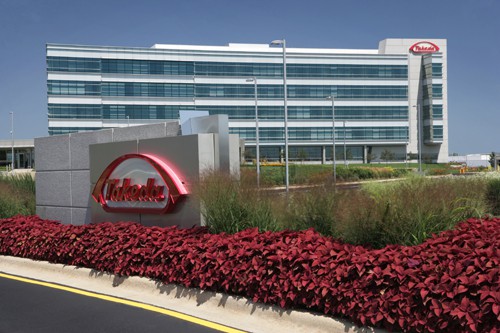
Faced with a steep decline in its own profits in the last quarter, Takeda will have been looking for good numbers from acquisition target Shire – and on the whole the UK-listed firm didn’t disappoint.
Overall sales at the company rose 6% to $3.81bn in the second quarter half but it was a slightly mixed picture, with immunoglobulin therapies such as Gammagard up 20% to $612m but the company’s haematology franchise – including haemophilia products acquired along with Baxalta in 2016 – down 1% to $951m.
There were gains for long-acting haemophilia A drug Adynovate, which has been on the market since 2015 but only got EU approval earlier this year. However, Shire’s drugs for haemophilia patients with inhibitors such as Feiba came under competitive pressure from the likes of Roche’s recently-approved Hemlibra (emicizumab), falling 6%.
The performance of the haematology unit will give Takeda food for thought as it tries to convince some reluctant shareholders to back the Shire takeover, but its worth pointing out that the Japanese drugmaker has some problems of its own at the moment.
In its latest quarter, net profit almost halved on flat sales, with its big-selling cancer drug Velcade (bortezomib) down 11% after losing patent protection in the US last year. There were gains for newer products Entyvio (vedolizumab) or ulcerative colitis, up a third to around $550m, and myeloma therapy Ninlaro (ixazomib) which climbed 43% to $125m, but Takeda is predicting a 2% decline in sales for the full year.
More concerning for Takeda is a weak near-term pipeline, which is one of the reasons it is interested in Shire and pushing for a deal to close in the first half of next year.
Shire recently picked up additional approvals for Vonvendi/Veyvondi for von Willebrand disease and its hereditary angioedema (HAE) therapy Cinryze and has three new therapies filed for approval, namely lanadelumab for HAE, prucalopride (SHP555) for chronic idiopathic constipation, and calaspargase pegol (SHP663) for the treatment of acute lymphoblastic leukaemia (ALL). Overall the company has 16 programmes in phase III and seven in registration.
NASH drug fails
There was some bad news for Shire on the R&D front though, as the firm revealed in its interim statement that it had discontinued a phase II trial of volixibat (SHP626) for adults with non-alcoholic steatohepatitis (NASH) with liver fibrosis. The company isn’t an indication thought to have considerable market potential.
Shire chief executive Flemming Ornskov said that overall the company “delivered solid performance during the first half of this year executing against our key priorities and advancing our late stage pipeline.”




